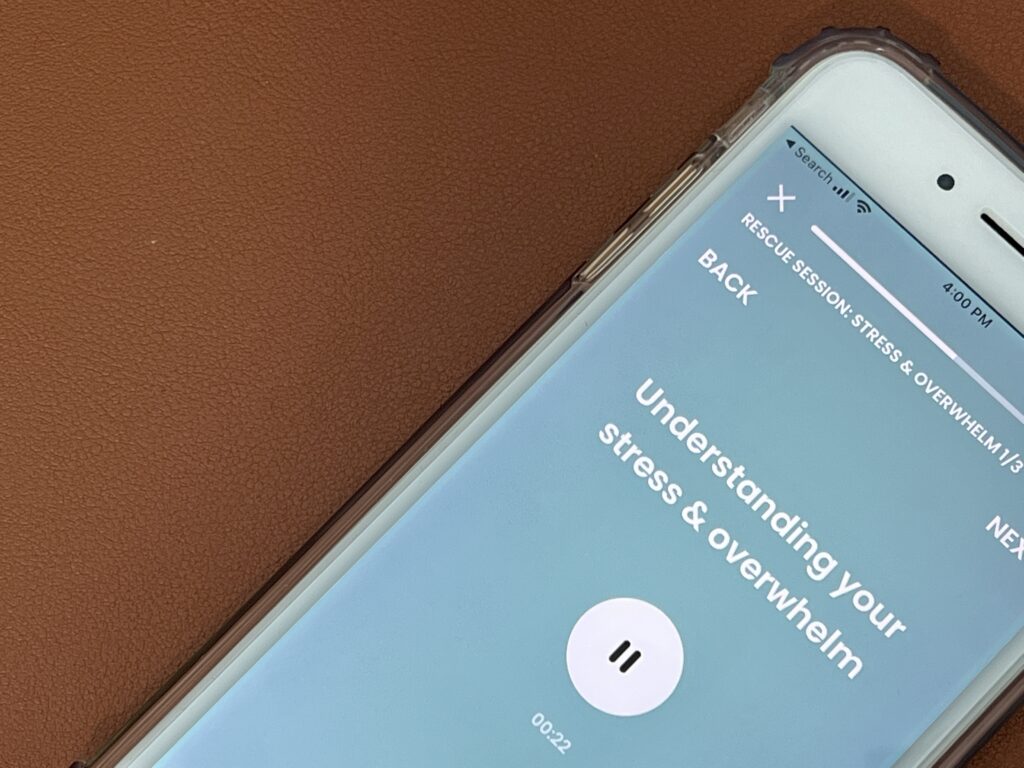According to the EY 2021 Work Reimagined Employee Survey, 85% of employees in Southeast Asia prefer flexible work arrangements over being in the office full-time. Even before the pandemic, a study by the National Council of Social Service in Singapore has proven that companies’ investment in flexible work arrangements see great payoffs.
However, long-term remote work has also been shown to increase feelings of isolation or loneliness, especially in younger employees aged 44 and below.
And while the flexibility of working from home empowers employees to set their own schedules, reduce commute time, and improve productivity, the blurred lines between professional and private time and space are also causing physical and mental exhaustion.
It’s a contradiction that both workers and managers are struggling to deal with.
Damaging workplace habits have always existed, causing burnout and mental fatigue long before the pandemic hit. But with the shift to the new normal of work from home, new habits have been picked up—some good, some bad.
And I’m not talking about productivity killers like multi-tasking during video calls or getting distracted by your social media feeds during the workday. I’m talking about the bad habits that are putting you on the slippery slope towards burnout, anxiety, or depression.

Fortunately, if managed well, hybrid and remote work give us the opportunity to better control our workspaces and routines, allowing us to fix some of the bad work habits that have negatively impacted our mental health in the past.
For the benefit of self-improvement, personal growth, and mental wellbeing, here are some of the most damaging work habits that you should cut from your daily routine, whether you’re in the office or working from home.
1. Not having proper lunch breaks
Be honest—how often do you eat lunch at your desk?
When working in the office, lunches are often seen as opportunities to bond with colleagues, stretch your legs, and take a much-needed midday break.
But when working from home, it becomes all too easy to grab a quick bite at your desk, or grab junk food over the hassle of preparing something more nutritious.
It might seem like a good idea to sit at your desk and clear emails during lunch, but that dangerous habits will affect both your physical and mental health. People who eat while distracted often tend to overeat, yet feel less full.

Those “forced” lunch breaks of 30 minutes to an hour are crucial to our mental wellbeing. Best of all, by stepping away and taking time to give yourself a bit of a breather, you’re going to improve your productivity later on in the day.
The key to building more healthy work habits? Rephrasing your thoughts.
“When we say things like ‘I’m not able to go to the gym or have a healthy lunch because of my busy work schedule’, we make ourselves the victim of work and justify the bad habits,” says Suprita Sinha, a behavioural analyst and coach at Intellect.
“But once we flip the script and change the ‘I’m not able to’ to ‘I choose not to’, we start to realise that we are in control of our own priorities, and stops us from blaming work for all our problems.”
2. Sitting for hours at your desk
Sedentary lifestyles have been shown to increase the likelihood of heart disease, diabetes, and even early death.
But beyond the physical ramifications of sitting all day, the mental repercussions are significant too.
Dr Jemma King, a behavioural and organisational psychology researcher, shares that one of the most effective ways to activate the stress hormone cortisol in animals is to put them in a confined space.
The same goes for humans. From an evolutionary perspective, staying inside all day and being still for extended periods results in increased stress, sleepiness, and social withdrawal—feelings that mimic the symptoms of depression.

To combat this, be sure to burn off your stress chemicals and reset your primitive brain by engaging in small bursts of physical activity such as:
- A brisk walk or a quick climb up and down a staircase
- A quick set of star jumps
- A vagus nerve reset, where you lie on back with both hands behind your head, fingers interwoven, and without turning your head, look to the right, wait till you spontaneously yawn or swallow, and repeat on the other side
This also reinforces why it’s so important to take proper lunch breaks, so you’ll have the opportunity to stretch your legs and maybe even get some fresh air and sunlight.
3. Working in your pyjamas
Working in your pyjamas won’t hurt your productivity—but it will hurt your mental health.
A study found that those who wore pyjamas during the workday at least once a week reported a more significant decline in their mental wellbeing while working from home.
But the underlying cause isn’t so much the clothes themselves, but the state of mind they put you in.
Think about your morning routine when you would go to the office. You’d likely take a shower, put on your office wear, and make the commute to the workplace. All these little activities add up to help prepare your mind for the workday.
But when working from home, you’re more likely to simply roll out of bed and just sit down at your desk first thing in the morning.

Routine allows us to stay focused and motivated, and pre-work rituals are important for helping us mentally switch from “home mode” into “work mode”. This helps better demarcate when office hours start and end, and is key to drawing clear internal boundaries between personal and professional time.
Beyond changing out of your pyjamas, you can also incorporate other little rituals—such as writing (yes, with pen and paper!) a to-do list or playing some music—to signal the start of the workday.
The point is to help us mentally enter and leave the office, even if they’re physically the same place.
4. Replying to work messages outside of office hours
Sure, there are times when working extra hours is necessary to meet important deadlines.
But if working overtime is a constant occurrence—or expectation—and work pressure is relentless, then that’s a big problem. Overworking yourself is not only going to leave you physically and mentally drained, but possibly angry, resentful, and guilty as well.
Certain work habits that have been normalised but are extremely toxic to your mental wellbeing include:
- Sending emails after work hours or over weekends
- Giving instant replies to everything and disrupting your workflow to respond to incoming chat messages or emails
- Saying “yes” to every assignment that comes your way, therefore taking on much more than you can handle
It’s important to learn to say “no” in more constructive ways so you don’t end up burning out, and switch off after work hours so you can decompress, destress, and feel refreshed before starting work again the next morning.
5. Equating your professional successes with your self-worth
This is a tough one.
For many of us, work is more than just a means to put food on the table. It’s a big part of our self-identify—so much of our time and social interactions center around what we do for a living, and career success is often linked with personal success.
It’s why we push ourselves to breaking point to prove our value, to ourselves and to others.
But while finding self-worth in work may bring short-term rewards and external validation, it’s also a double-edged sword.

The upside of healthy competition is personal growth and self-improvement, but the downside is that constantly comparing ourselves with others is bound to lead to feelings of envy, low self-esteem, stress, and depression.
To truly find long-term fulfilment and happiness, it’s critical that we have a more well-rounded sense of self-worth. Professional wins should not always be equated with personal happiness, especially if it comes at the cost of your overall wellbeing.
After all, our lives are more than just work—they’re also our hobbies, relationships, and experiences.
Workplace mental health is a joint effort between employees and employers
Employees have a responsibility to build individual resilience again workplace stressors and bad work habits. People are responsible for prioritising their own physical and mental health, not sacrificing it for the sake of productivity.
But managers also have a crucial role to play in establishing a workplace culture that understands what it means to have healthy boundaries, fosters mutual trust, and doesn’t glorify “hustle culture” as a virtue.
This means setting an example when it comes to switching off after work hours, being aware that hybrid work increases the risk of employee isolation and taking steps to tackle that, proactively managing your team’s workload, and actively encouraging healthy habits and self-care practices that safeguard mental wellness in the workplace.
By amplifying the benefits while diminishing the drawbacks of flexible work, the future of work will be a win-win.






